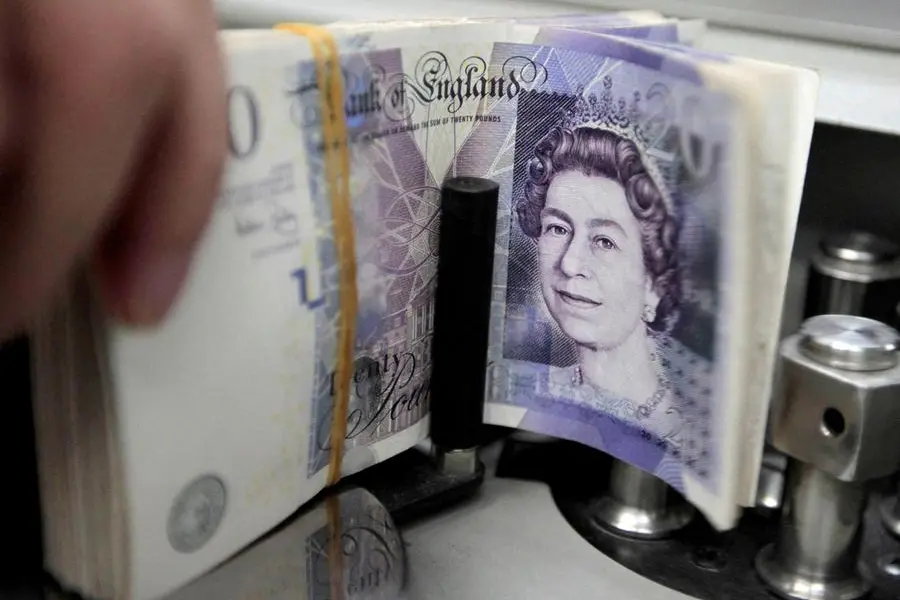PHOTO
The British pound weakened against the dollar on Thursday after policy minutes from the Federal Reserve boosted the U.S. currency and traders worried soaring UK inflation would mean higher interest rates and a weaker British economy.
The latest inflation figures, which were released on Wednesday and came in above 10%, increase pressure on the Bank of England (BoE) to bring down prices and also ramp up fears of a sharp economic slowdown.
The pound was down 0.1% against the dollar at $1.204 and earlier fell to $1.1995. Versus the euro, however, it edged up to 84.39 pence.
"The main observation on yesterday was how big the reaction in the rates markets was compared to almost no reaction in sterling," said Adam Cole, chief currency strategist at RBC Capital Markets.
British two-year government bond yields surged to their highest since November 2008 on Wednesday, and stayed close to this level on Thursday. Sterling fell 0.4% against the dollar after the inflation data release.
In light of the modest sterling reaction, Cole questioned whether the prospect of higher rates was being outweighed by questions over the credibility of monetary policy longer term.
Investors are fully pricing in a 50 basis point hike at the BoE's September meeting, according to data from Refinitiv, with a projected peak in the bank rate of 3.75% now seen in May 2023. Earlier this week, money markets had seen the bank rate peaking earlier in March.
The Conservative Party leadership race to succeed British Prime Minister Boris Johnson remains a headwind for sterling, with frontrunner Liz Truss' spending plans and potential plans to review financial regulators under the spotlight.
(Reporting by Lucy Raitano Editing by Mark Potter)
Reuters





















